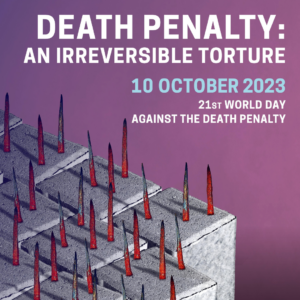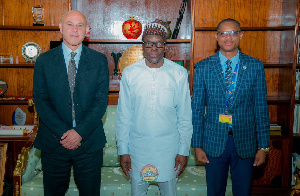DPP Welcomes Singapore Plan to Restrict the Death Penalty
- News
- 10 Jul 2012
The Government of Singapore is to abolish the mandatory imposition of the death penalty for certain offences – following a review that was partly shaped by a pair of London human rights lawyers.
Saul Lehrfreund and Parvais Jabbar run the Death Penalty Project (DPP), which has assisted an influential Singapore lawyer in mounting a number of important constitutional legal challenges to the death penalty.
This week’s statement from the Singapore government says that the legislation will be introduced later this year – and that until then there will be a moratorium on executions.
Up to now, the death penalty has been automatically imposed on all people convicted of murder and other offences, such as drug trafficking. Members of the judiciary have had no discretion, with the death penalty being the only available sentence, irrespective of all extenuating circumstances.
‘We welcome this development which will bring Singapore closer in line with many other countries that have in recent years abolished the mandatory death sentence,’ said Mr Lehrfreund and Mr Jabbar, executive directors of the DPP. They added: ‘While this is a positive move in the right direction, mandatory death sentences are prohibited by international law and, as such, the Government of Singapore will need to abolish it altogether, so judges will have the power to dispense discretion in all cases.’
In recent years, the Death Penalty Project, together with Doughty Street Chambers, has assisted Singapore lawyer M. Ravi in a number of cases, including a challenge to the mandatory imposition of the death penalty in the case of Yong Vui Kong. Mr Yong, who is now 24, was convicted of drug trafficking in the High Court of Singapore and was sentenced to death in 2008. He had admitted at trial that he was a drug courier and was convicted of trafficking 47.27 grams of diamorphine. He was 19 years old at the time he was charged and had no previous criminal record, yet the judge had no option but to impose the mandatory death sentence.
Even though the legal challenge to the mandatory death penalty did not succeed, this litigation has played a vital role in bringing the issue of the mandatory death penalty to the fore, leading to the proposed legal reforms.
The Government has now indicated it will take the necessary steps to abolish the mandatory death penalty for some categories of drug trafficking offences and homicide offences, although not for crimes of deliberate or intentional murder. All accused people – and those presently under sentence of death who meet the necessary requirements – will be re-sentenced under the new law. Mr Yong, who faces imminent execution, will now have the opportunity (along with other death row prisoners) to seek a review of his death sentence, potentially saving his life.
About the Death Penalty Project
The Death Penalty Project is an independent international human rights organisation housed in the offices of Soho legal firm Simons Muirhead & Burton.
For more than 20 years, the Death Penalty Project has worked to protect the human rights of those facing the death penalty. As a result of its work, the mandatory death penalty has been abolished in ten Commonwealth Caribbean countries as well as Uganda, Kenya and Malawi, and the lives of hundreds of prisoners facing execution have been saved.
In the case of Yong Vui Kong, the Death Penalty Project instructed Edward Fitzgerald QC, John Jones and Ben Silverstone from Doughty Street Chambers, on a pro bonobasis.
For further press information, please contact: Annette So on (+44) 203 206 2748




















